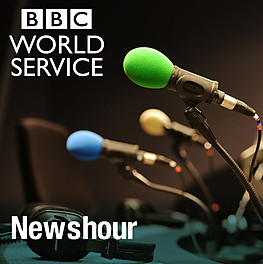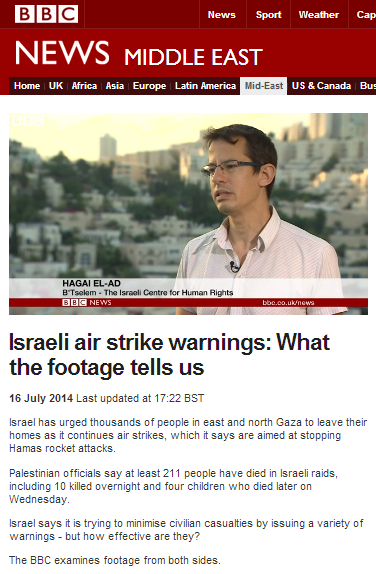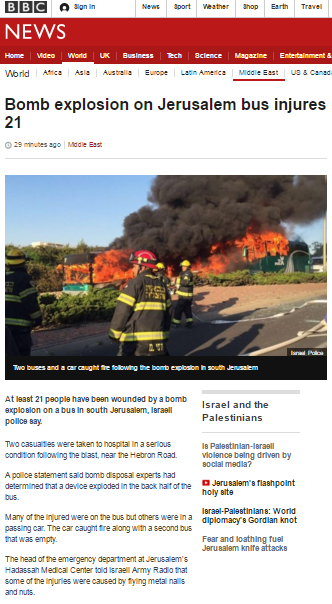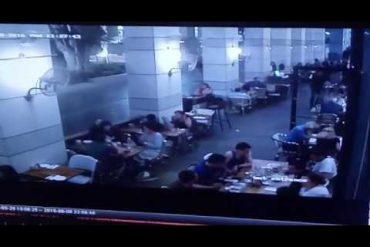The September 2nd afternoon edition of the BBC World Service radio programme ‘Newshour’ included an item described in its synopsis thus:
“…concerns grow over clashes between Israel and Hezbollah on the Lebanese border”
Presenter Razia Iqbal introduced that item (from 30:05 here) as follows: [emphasis in italics in the original, emphasis in bold added]
Iqbal: “Now to the Middle East and there has been over the weekend a sharp escalation of already high tensions between Israel and Hizballah – the Shi’ite Islamist political party and militant group based in Lebanon. The group is headed by Hassan Nasrallah and its military wing is considered to be a terrorist organisation by Israel, the United States, the Arab League and the EU among others.”
That portrayal of designations of Hizballah is inaccurate and misleading. The organisation as a whole is proscribed by the US, Canada, Israel, the Arab League, the Gulf Cooperation Council, the Netherlands, Bahrain, Japan, the UAE, Kosovo, Argentina, Paraguay and of course the BBC’s own home country, the UK. Hizballah’s so-called “military wing” (a distinction which even Hizballah leaders say does not exist) is proscribed by Australia, New Zealand, France and the EU.
Iqbal continued:
Iqbal: “It’s widely acknowledged that Hizballah acts as a proxy for Iran and the group fired anti-tank missiles into northern Israel on Sunday: retaliation it says for a drone strike by Israel in Beirut and the killing of two commanders in an Israeli strike inside Syria. That prompted Israel to retaliate against three villages in southern Lebanon and also, fears that what appears to have been a contained exchange could become a bigger deal.”
Israel did not “retaliate against three villages in southern Lebanon”. As reported by the Times of Israel:
“In response to the attack, the Israeli military said its artillery cannons and attack helicopters fired approximately 100 shells and bombs at Hezbollah targets in southern Lebanon. […]
“The IDF returned fire at the [missile-launching squads] at targets in southern Lebanon,” the army said in a statement. […]
Lebanese media reported that the IDF bombed sites near the Lebanese border town of Maroun al-Ras.”
AP reported that:
“The Lebanese army says Israeli forces have fired some 40 shells on the outskirts of several border villages…
In Lebanon, the Israeli shelling was concentrated on areas close to the border near the villages of Maroun el-Ras and Yaroun, triggering some fires.”
In other words, not only did Razia Iqbal fail to clarify to listeners that Hizballah is entrenched among the civilian population of southern Lebanon in violation of UN SC resolution 1701, she also gave them the erroneous impression that Israel had ‘retaliated’ against civilian communities – “three villages”.
The item continued with an interview with Brigadier General (Res.) Assaf Orion during which Iqbal unnecessarily qualified Israeli intelligence findings.
Iqbal: “I wonder if we can just focus on the extent to which Israel believes that these precision missiles are already in possession of Hizballah [sic]; how advanced that programme is from Israel’s point of view.”
Following that interview listeners heard from Barbara Plett Usher in Jerusalem and that conversation included more irrelevant qualification from two people who are not military correspondents and without the BBC as far as we know having carried out any independent investigation into the subject.
Plett Usher: “They [Israel] have been bombing…ah…Iranian bases and convoys in Syria, thinking that they’re trying to get weapons to Hizballah and now if the Iranians are indeed trying to convert Hizballah rockets in Lebanon, that by the Israelis would be seen as an even bigger threat. So they have this campaign out there – information campaign – claiming that this is happening and providing details about it.”
Significantly though, neither Iqbal nor Plett Usher bothered to clarify to listeners that Iran’s supply of weapons to Hizballah violates UN SC resolution 1701 and so once again BBC audiences were exposed to inaccurate and superficial reporting which fails to contribute to their understanding of this story.
Related Articles:
Limited BBC coverage of latest Hizballah designation
BBC News promotes a claim it previously amended in February
BBC reporter who “breached the requirements of due impartiality” back in Israel
Through the Smoke, Reuters’ double standard: fires in Lebanon, Israel (CAMERA)




